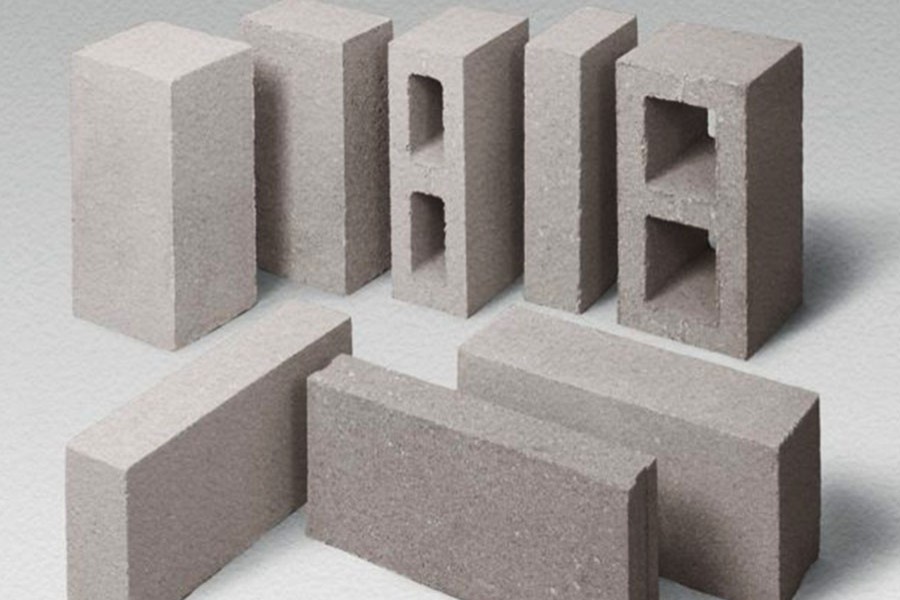A quiet revolution is taking place in the country's construction sector. With the concrete blocks including their hollow variety replacing the traditional bricks, the concept of constructing infrastructure, residential buildings and other accommodations in particular, will change forever. The case for replacement of bricks with concrete blocks for construction of buildings ---high-rise or otherwise---was advanced years ago but did not receive much attention. Now that the environmental concern has increasingly been gaining ground, the government has also decided to phase out bricks with concrete blocks within a reasonable timeframe. The anarchic mushrooming of illegal brick kilns and their poisonous impact on the environment appear to have been the deciding factor in clinching the day for the eco-friendly concrete blocks. Such a paradigm shift in the construction sector can catapult the country on to a green platform of building materials. In fact, if the entire world opts for these building blocks, the history of human civilisation may be rewritten.
Why this will be so can be realised from a number of advantages the concrete and hollow blocks provide. The number one advantage is that such blocks do not use clay of crop fields and need no burning in kiln. Already brick kilns have rendered cultivable land infertile and arid in several places all across the country. If use of bricks is banned, brick kilns will automatically disappear. There will be two-fold gains; first, no loss of crop fields to brick kilns and second, an end to spewing poisonous fumes and toxic gases that cause environmental pollution on a massive scale. The hollow concrete blocks, according to experts, are lighter than bricks ---about one-third less than the weight of bricks required to cover the same space they do ---and have far more sound and heat insulation capacity than bricks. All these qualities make buildings firmer than brick-walled ones.
The prospect of any technology depends on its cost-effectiveness. On this count too, concrete blocks have a lucrative edge as the space covered by a concrete block requires five bricks to do so. Now five bricks cost Tk 50 as against Tk 35 for a block. Add to this the requirement for less cement to construct walls, the advantage is even more in favour of concrete blocks. Then the durability and no chance of gathering mosses on the outer walls complete the plus points of such blocks. These are features of a primary construction material that is yet to gain popularity. The reason behind this is nothing but a lack of promotion.
Some of the business groups having leading real estate enterprises as their sister concerns have, reportedly, been manufacturing concrete blocks in their automated factories mainly for use in their own housing ventures. More entrepreneurs need to come forward for manufacturing concrete blocks soon. Meanwhile a vigorous campaign must be launched to highlight the merits of concrete blocks. The leading real estate companies may carry out advertisements with pictures of their flagship multi-storied buildings made of concrete blocks to draw people's attention. A construction spree with this material is likely to take place ---one that will have to match the required infrastructure of a developing country Bangladesh is poised to be.


